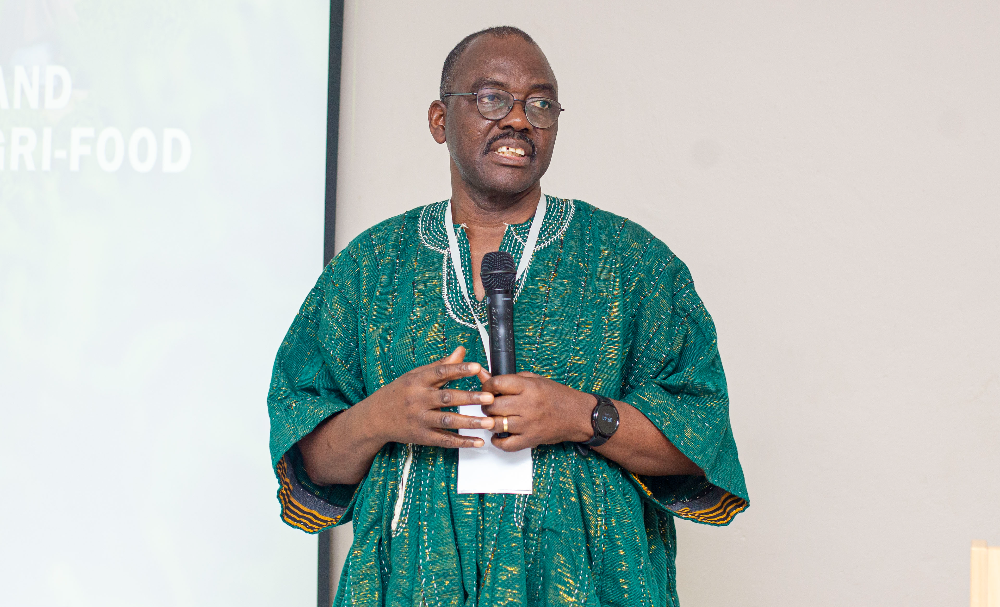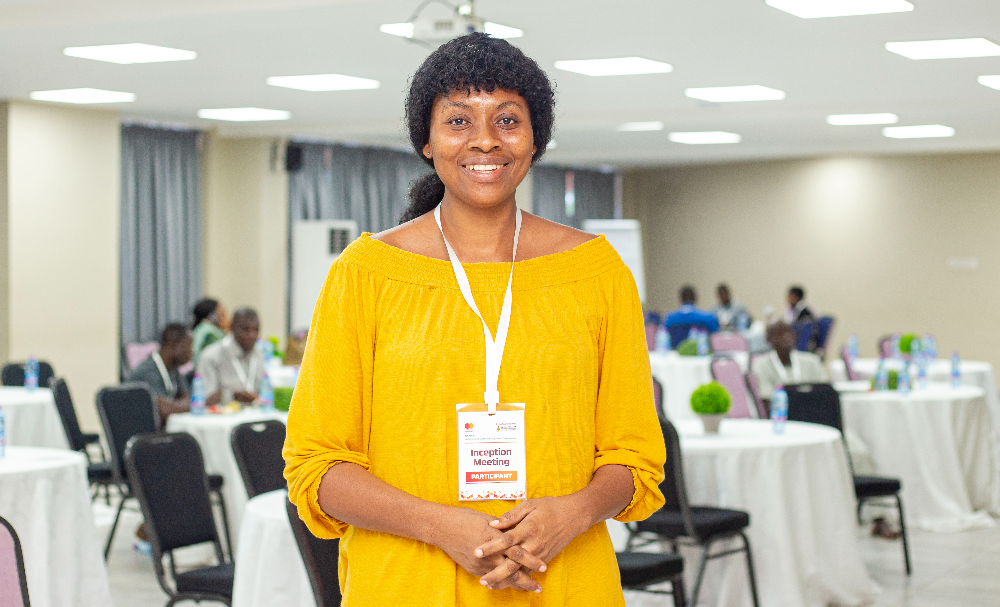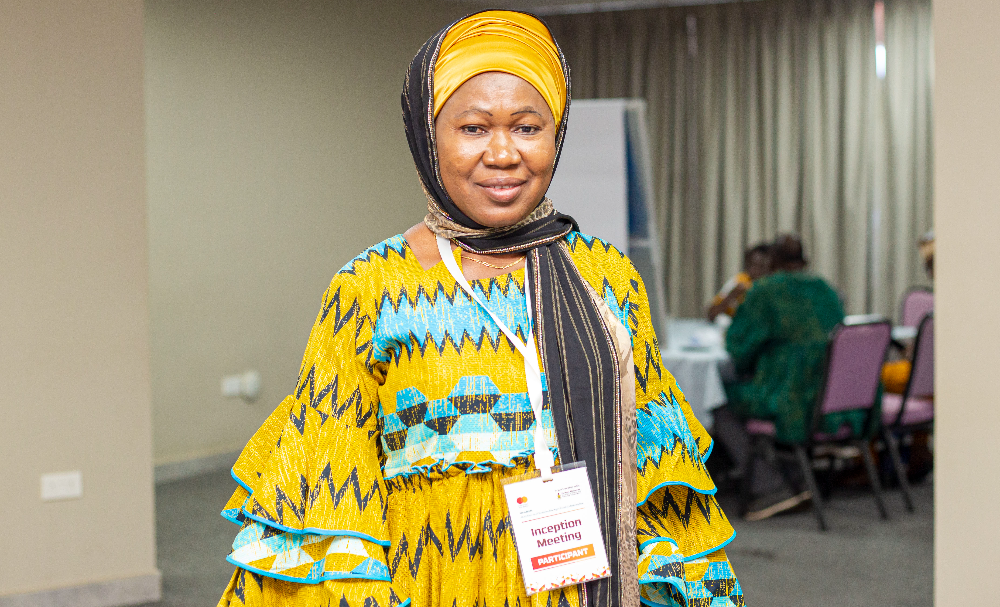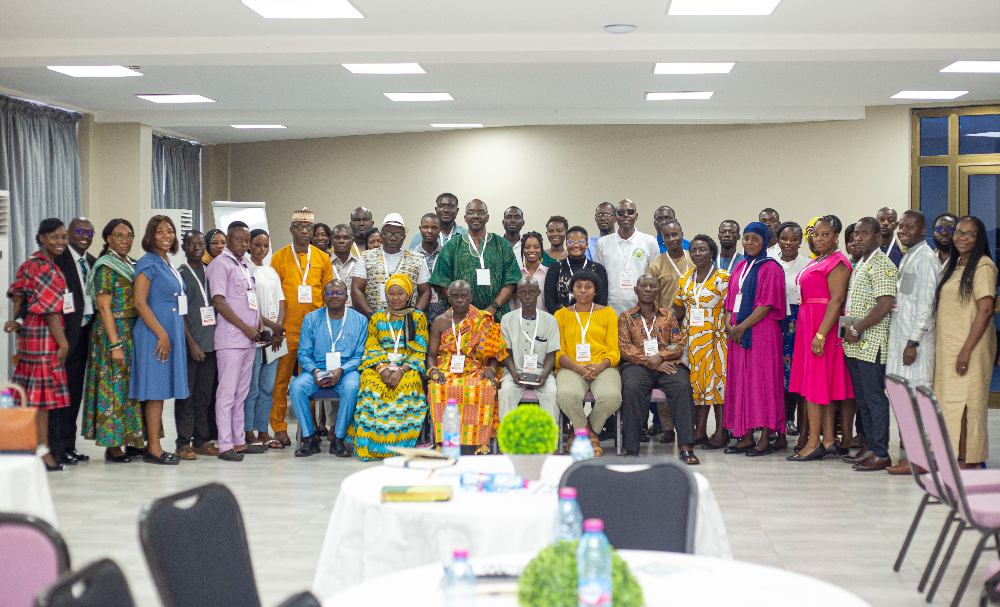The KNUST Nutrition and Sustainable Agri-food Collaborative (Nkabom) project, in partnership with the Mastercard Foundation, has further strengthened its partnerships by engaging a diverse group of agricultural stakeholders.
This included opinion leaders, assembly members, chiefs, presiding members, health directorate representatives, NGOs, farmer-based organizations, and gender unit representatives from District Assemblies.
Over 40 participants convened at KNUST to strategize on enhancing the Nkabom project's impact.
This meeting provided a platform for sharing ideas and developing strategies to boost workforce development in the agri-food sector, building upon previous engagements with academic and research institutions.

Professor William Otoo Ellis, the project’s Principal Investigator, emphasized the importance of collaboration, urging participants to unite in support of the project's goals. Pillar leads, Professor Wilberforce Owusu-Ansah (Entrepreneurship) and Dr. Abena Boakye (Education), presented their respective activity plans.

Participants expressed optimism about the project's potential. Ms. Charlotte Tay, Women in Agricultural Development (WIAD) officer for Ketu North, stated, “I’m already thinking of individuals who can benefit from this inclusive program. I’m especially pleased I can disseminate information in the local dialect.”

Ms. Atchulo Azara, from the Savanna Region Agriculture Department, added, “This project, with its focus on women farmers, value addition, nutrition, and gender, has exceeded my expectations. If implemented effectively, it will greatly benefit our communities.”
The Nkabom project aims to address youth unemployment and underemployment in the agri-food sector through enhanced education, entrepreneurship, and employment opportunities, prioritizing equity for women, differently-abled individuals, and displaced youth. Built on strong partnerships, the project collaborates with numerous non-academic partners from government, industry, and NGOs, including the Association of Ghanaian Industries (AGI).
This collaboration seeks to develop skilled professionals and entrepreneurs, contributing to the Mastercard Foundation’s Young Africa Works strategy of creating 30 million jobs for youth by 2030.

















